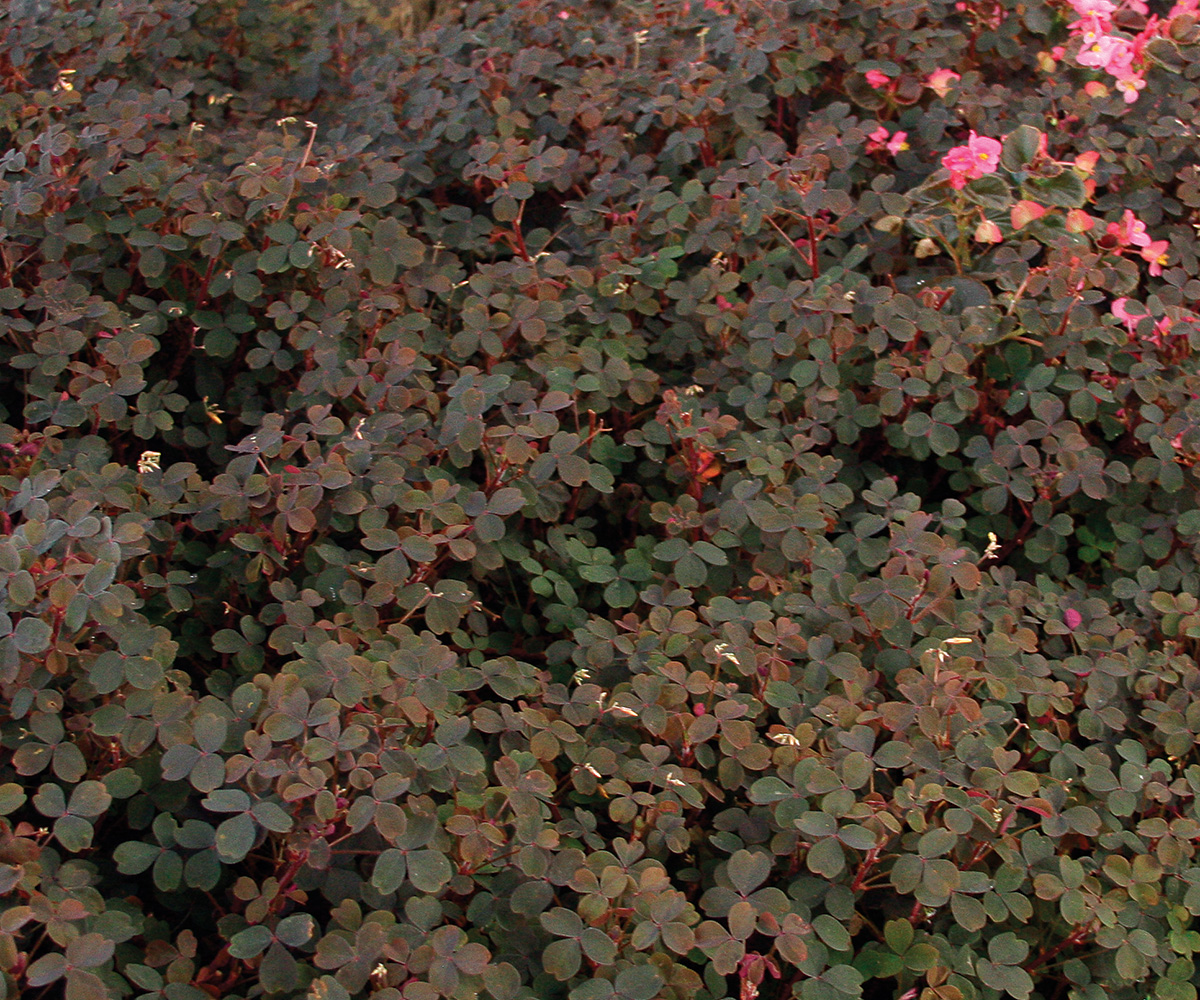This diverse and exciting plant group seems like it appeared overnight, with new varieties emerging every day. Sun or shade, upright or trailing, dwarf or massive—there is a coleus for just about every container application. Their seductive color spectrum ranges from bright chartreuse to nearly pitch-black. Coleus can and should be used as the exclamation point in a container. They can offer a deeper saturation of the colors found in the surrounding border and will work hard to bring attention away from the harsh edges of lifeless patios and walkways. I often include a specific variety in my containers and then repeat that same coleus in a nearby section of border to tie it all together.
My list of favorites has evolved over the years as new breeding efforts and improved genetics continue to rock the coleus world. Some favorites have remained constant, however, and I suspect many of these will be recurring characters in your containers, as well. As a general rule, most modern coleus have their best coloration in full morning sun with afternoon shade, although they are tolerant of full-day sun and shade.
Coleus liven up hard-to-reach areas
Coleus (Solenostemon scutellarioides cvs.)
Zone: 11
Conditions: Full sun to full shade, depending on the cultivar
Care: Pinch coleus to encourage full plants. Water regularly to prevent wilting, though coleus are resilient and will bounce back from an occasional dry spell.
‘Burgundy Wedding Train’ coleus
This hardworking cultivar gets along well with neighboring plants as it tends to fill in gaps between other members in a combo. The plant has a semi-trailing habit and will grow vigorously in sun or shade.
‘Sedona’ coleus

Named after the Sedona Mountains, this coleus’s one-of-a-kind color palette mimics the colors of the Southwest. Expect to see the best color in full sun to partial shade, even though ‘Sedona’ will also perform well in bright shade.
‘Fishnet Stockings’ coleus

Deep purple–lined veins make this coleus stand out among all others. Pair this upright coleus with a plant that has smaller dark-leaved foliage or with a fine-textured grass to produce a winning fit. It’s stunning in morning sun or shade.
‘Kingswood Torch’ coleus

This flaming magenta coleus produces quite the scene, even from a distance. Its large leaves need at least partial sun to show their best color.
‘Gay’s Delight’ coleus
This dependable, upright coleus produces compact, stocky plants. It exhibits fantastic sun tolerance, although it seems equally content in shade.
‘Rustic Orange’ coleus

I am a sucker for orange-leaved plants, and ‘Rustic Orange’ is one of the best. Too much afternoon sun may cause leaf scorch, so find a home for this coleus where it can enjoy morning sun and afternoon shade.
‘Religious Radish’ coleus

I like the subtle elegance of this upright, deep red coleus. ‘Religious Radish’ demonstrates vigor and good color in either sun or bright shade.
‘Freckles’ coleus
The spotted relative of the more popular ‘Sedona’, ‘Freckles’ adds some pizzazz to container combinations. This coleus does best in morning sun, as it will scorch with the intensity of afternoon sun.
‘Kiwi Fern’ coleus

This distinctive, stocky coleus produces upright plants with an overall texture that is finer than other coleus varieties. ‘Kiwi Fern’ will have its best color in full sun to partial shade but will tolerate more shade.
Not crazy about coleus?
If coleus just aren’t your thing, there are other fantastic plants that offer similar attributes. Specialty geraniums, such as ‘Crystal Palace Gem’ (Pelargonium ‘Crystal Palace Gem’, annual), will serve you well in sunny spots, while rex begonias (Begonia cvs., Zone 11) and polka-dot plants (Hypoestes phyllostachya and cvs., Zones 10–11) are worthy candidates for the shadiest areas. If space is a factor, Zinfandel™ oxalis (Oxalis vulcanicola Zinfandel™, Zones 9–11) or threadleaf alternanthera (Alternanthera ficoidea cvs., Zone 11) will fit in just fine.
‘Crystal Palace Gem’ geranium
Polka-dot plant
‘Marmaduke’ rex begonia

Zinfandel™ oxalis

‘Red Threads’ threadleaf alternanthera

Photos, except where noted: Brandi Spade





